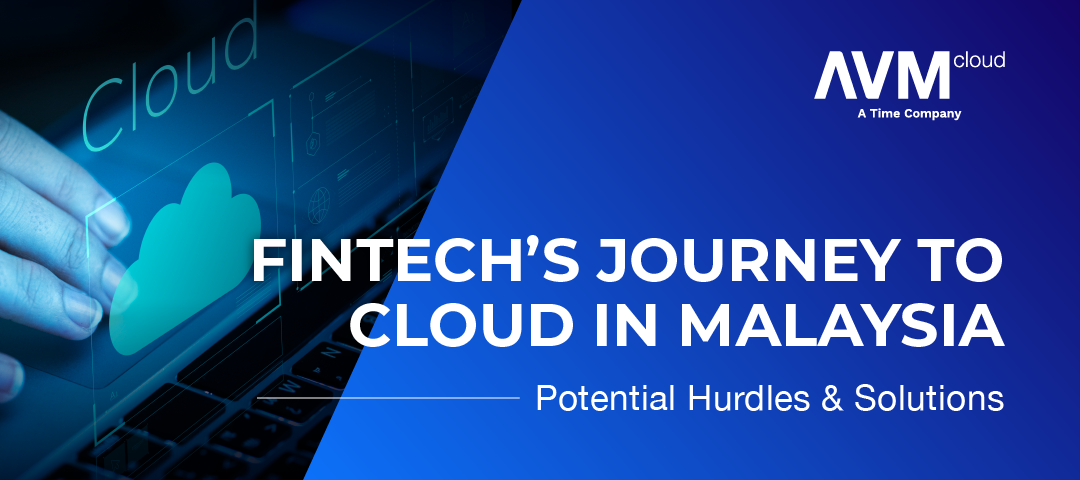
In the dynamic world of financial technology (FinTech), Malaysia stands at the cusp of a significant transformation. FinTech firms in Malaysia increasingly look to leverage the scalability, flexibility, and efficiency of cloud computing, and amongst the key players poised to facilitate this transition, AVM Cloud emerges as a beacon of innovation and support. However, as these enterprises embark on their cloud journey, they face a myriad of potential hurdles. Understanding these challenges and identifying viable solutions is critical for a smooth transition and to fully harness the power of the cloud.
Navigating Regulatory Compliance and Data Security Concerns
For FinTech enterprises venturing into cloud computing within Malaysia, the terrain of regulatory compliance and data security presents a formidable challenge. These entities handle an abundance of sensitive financial information, necessitating adherence to the stringent Malaysia Personal Data Protection Act (PDPA) along with any applicable international regulatory frameworks. This is compounded by the sector's inherent need for uncompromising data security measures to safeguard against breaches and ensure consumer trust.
It is important for FinTech firms to collaborate with cloud service providers (CSP) that prioritize compliance and security that enables them to confidently face the regulatory scrutiny and data protection challenges head-on. The right CSP ensures that while companies focus on innovating and scaling their services, they remain steadfast in their commitment to data security and regulatory adherence, paving the way for a secure and compliant cloud transition.
To adeptly navigate this landscape, selecting a cloud service provider (CSP) that is well-versed in both local and global regulatory requirements become crucial. Providers such as AVM Cloud not only offer services aligned with these legal standards but also incorporate advanced security protocols and data governance models into their offerings.
In addition to choosing the right CSP, implementing encryption techniques for data at rest and in transit is essential. Regular audits, conducted to assess and tighten security postures, alongside a privacy-by-design approach, ensure that data security is not just an add-on but integral to the system architecture from the outset.
Ensuring Seamless Integration with Existing Systems
The transition to cloud computing within the FinTech sector is often met with the substantial task of integrating new cloud solutions with existing, entrenched legacy systems. These legacy systems have traditionally been the backbone of financial operations, designed for stability and reliability over years, if not decades. However, they may lack the flexibility and scalability that cloud environments inherently provide. Bridging this gap between old and new requires a meticulous and methodical approach to ensure that the operational continuity is maintained while leveraging the benefits of the cloud.
A strategic method to facilitate this integration is through the adoption of a phased approach. By methodically migrating services to the cloud in stages, FinTech companies can minimize disruption to their daily operations. This gradual transition allows for the careful monitoring of each phase, ensuring that any issues can be addressed promptly without significant impact on the overall system.
Selecting a cloud service provider known for offering customizable solutions is also paramount. A provider that understands the unique challenges faced by FinTech firms, such as AVM Cloud, can offer tailored services that significantly ease the integration process. Their expertise can be invaluable in navigating the complexities of blending new cloud technologies with older, more traditional systems.Selecting a cloud service provider known for offering customizable solutions is also paramount. A provider that understands the unique challenges faced by FinTech firms, such as AVM Cloud, can offer tailored services that significantly ease the integration process. Their expertise can be invaluable in navigating the complexities of blending new cloud technologies with older, more traditional systems.
Through these measures, FinTech companies can ensure that their move to the cloud not only enhances their operational efficiency and scalability but does so without compromising the integrity and reliability of their existing systems. This careful, considered approach is essential for a successful cloud integration that supports the future growth and innovation of the financial technology sector.
Managing Costs and ROI Expectations
Embarking on the cloud journey promises significant advantages in terms of scalability and operational agility for FinTech companies. However, the financial outlay associated with this transition, along with the anticipation of immediate and high returns on investment (ROI), poses considerable challenges.
Adopting a cloud service model that aligns with the financial and operational goals is equally essential. Pay-as-you-go pricing structures, for instance, offer the flexibility to scale services up or down based on current needs, thereby optimizing costs. This model ensures that companies only pay for the computing resources they consume, making it easier to manage budgets and forecast expenses more accurately.
Furthermore, leveraging cloud services that offer comprehensive analytics and monitoring tools can provide invaluable insights into usage patterns, operational bottlenecks, and potential areas for cost savings. These tools enable FinTech firms to refine their cloud strategies continuously, ensuring that their investment is directed towards areas that offer the highest return.
In navigating the financial aspects of cloud adoption, a balanced view that considers both immediate costs and the strategic value of cloud capabilities in driving future growth is crucial. By focusing on strategic cost management and the long-term benefits of cloud integration, FinTech companies can align their investment in cloud technologies with their broader business objectives, setting the stage for sustained success and innovation in the digital finance landscape.
Cultivating Cloud Expertise Within Your Organization
The successful migration and operation of cloud technologies within the FinTech sector demand a workforce proficient in cloud computing. The gap in cloud expertise presents a significant obstacle, as the lack of skilled personnel can slow down or even derail cloud adoption efforts. This necessitates a proactive approach in enhancing the cloud competencies of existing employees, ensuring they are equipped to handle the intricacies of cloud technologies effectively.
To address this, FinTech firms must prioritize robust training and development initiatives focused on cloud skills. This could involve curated learning paths that include online courses, workshops, and hands-on projects designed to build cloud-related knowledge and skills. By investing in their workforce in this manner, companies not only enhance their internal capabilities but also demonstrate a commitment to their employees' growth and development, which can improve retention and attract new talent.
Additionally, engaging with cloud service providers that offer this support is a strategic move. Reach out to AVM Cloud for cloud managed service to provide immediate support and support capabilities to meet your organization’s IT needs. Such partnerships can be a valuable resource for businesses looking to expedite their cloud adoption process while minimizing the learning curve for their staff.
Addressing Consumer Trust and Adoption
One of the pivotal factors determining the success of FinTech's cloud migration in Malaysia hinges on consumer trust and the willingness to adopt new, cloud-powered services. Amidst evolving digital finance landscapes, apprehensions surrounding data privacy and the robustness of cloud solutions can act as barriers to user acceptance. A multifaceted strategy is essential to assuage these concerns and foster a supportive environment for cloud adoption among consumers.
An open and transparent dialogue with users about the measures being implemented to protect their data is foundational. This involves detailing the encryption methods, compliance with regulations, and the continuous efforts to maintain and enhance security protocols. Educating the consumer base about how cloud technologies benefit them—such as through enhanced service reliability, improved user experiences, and the introduction of innovative financial products—can shift perceptions and highlight the value addition of cloud migration.
Moreover, engaging with esteemed cloud service providers like AVM Cloud, renowned for their commitment to security and reliability, offers an extra layer of reassurance to consumers. It signals to the user base that their financial service providers are serious about safeguarding their data and are employing state-of-the-art technologies to do so.
Ultimately, overcoming consumer skepticism requires a concerted effort to educate, communicate, and demonstrate the tangible benefits and safeguards of cloud adoption. Through these initiatives, FinTech firms can pave the way for greater acceptance and trust in cloud-based financial services, laying a strong foundation for the future of digital finance in Malaysia.
If you need a cloud service provider to start your cloud journey with security, compliance, scalability, performance, and cost-effectiveness contact us at enquiry@avmcloud.net





